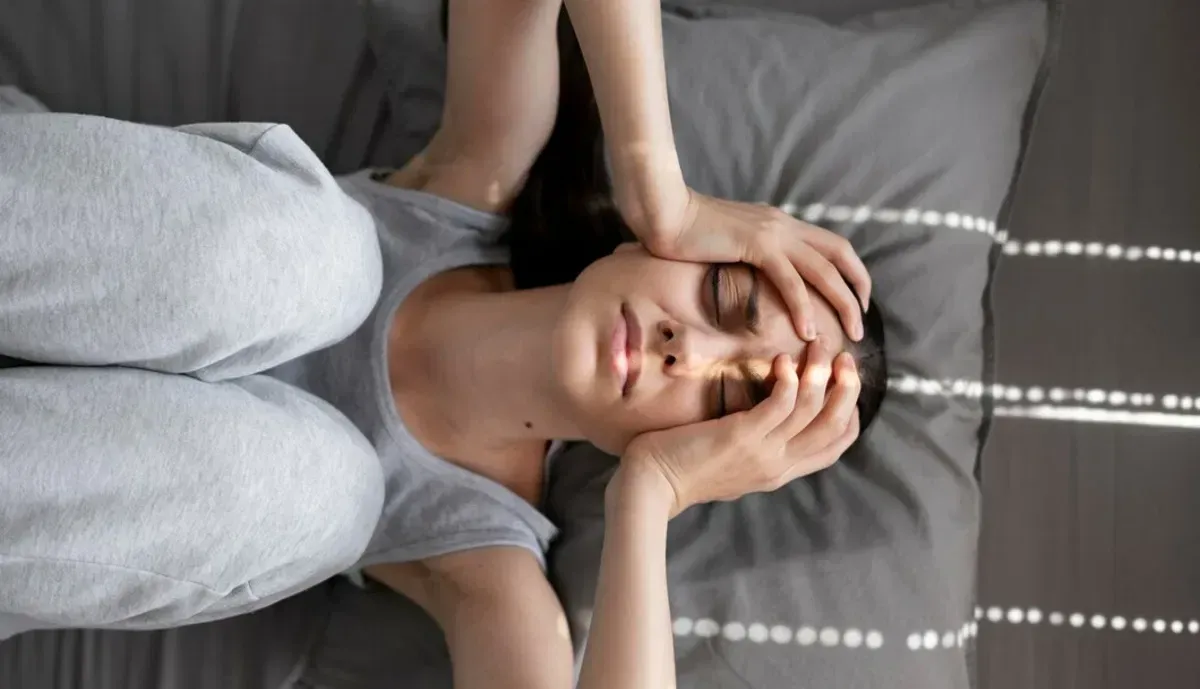Attention: Pittsburgh Dental Sleep Medicine no longer offers jaw joint treatments (TMD). We only offer sleep apnea oral appliances. Click HERE for our trusted providers.
Need a CPAP Alternative? Call: 724-935-6670
OFFICE PHONE: 724-935-6670
Managing Depression Through Better Sleep: Effective Strategies

Getting enough good sleep is essential for our overall health and well-being. When you don’t sleep well, it can affect many aspects of your life, including your mood and mental health. Many people in Monroeville struggle with both sleep problems and depression. The two are closely linked, and improving sleep can play a big role in managing depression.
Understanding the connection between sleep and depression can help you find ways to improve both. Simple steps to improve sleep can have a big impact on mood and mental state. In the following sections, we’ll look at how poor sleep affects mental health, the role of sleep apnea in depression, and effective strategies to get better sleep and manage depression.
Understanding the Connection Between Sleep and Depression
Sleep and depression are closely connected. When you don’t get enough sleep, it can make you feel sad, anxious, or irritable. Lack of sleep can also make it hard to think clearly and focus on tasks. Over time, these feelings and difficulties can add up, making depression worse or even leading to it.
People with depression often have trouble sleeping. This can include difficulty falling asleep, staying asleep, or waking up too early. These sleep problems make it hard to get the deep, restful sleep needed for a healthy mind and body. When sleep is poor quality, it becomes a challenge to manage emotions and stress, fueling the cycle of depression.
Improving sleep can help break this cycle. By working on getting better sleep, you can start to lift your mood, increase energy levels, and feel more positive about life. It’s important to address both sleep and depression together, as improving one can help the other. Understanding this connection is the first step toward feeling better.
Impact of Poor Sleep on Mental Health
Poor sleep has a big impact on mental health. When you don’t sleep well, your brain doesn’t get the rest it needs to function properly. This can lead to problems like trouble concentrating, poor memory, and slower thinking. These issues can affect daily life, making simple tasks feel difficult and overwhelming.
Another major effect of poor sleep is increased stress. Lack of sleep can make it hard to handle daily stress, leading to feelings of anxiety and frustration. Over time, high stress levels can weaken your immune system, making you more prone to illnesses. Being sick or feeling run-down adds to the burdens of stress and poor sleep.
Poor sleep also affects your emotions. You may feel more irritable, short-tempered, and less patient. This can strain relationships with family and friends, leading to feelings of loneliness and isolation. Addressing sleep issues is essential for improving mental health and overall well-being. Restful sleep helps you feel more balanced, positive, and ready to take on the day.
Role of Sleep Apnea in Contributing to Depression
Sleep apnea is a condition where breathing repeatedly stops and starts during sleep. This disrupts sleep quality and prevents the body from reaching deep, restorative sleep stages. For those in Monroeville with sleep apnea, the lack of good sleep can significantly contribute to feelings of depression.
When you have sleep apnea, your body is constantly deprived of oxygen during sleep. This can lead to increased stress on the heart and other vital organs. The strain impacts physical health and also affects mental well-being. The struggle with fatigue and poor health due to sleep apnea can lead to feelings of hopelessness and despair.
The link between sleep apnea and depression is strong. Many people with untreated sleep apnea report symptoms of depression, such as sadness, lack of interest in activities, and difficulty concentrating. Treating sleep apnea is essential for improving both sleep quality and mental health. By addressing this condition, you can start to feel more rested and positive.
Effective Strategies for Improving Sleep and Managing Depression
Improving sleep can have a big impact on managing depression. Here are some effective strategies:
1. Create a Sleep-Friendly Environment
- Keep your bedroom dark, quiet, and cool.
- Use blackout curtains and earplugs if needed.
- Make sure your bed and pillows are comfortable.
2. Establish a Regular Sleep Schedule
- Go to bed and wake up at the same time every day, even on weekends.
- Create a relaxing bedtime routine to signal your body it's time to sleep.
3. Limit Screen Time Before Bed
- Avoid using phones, tablets, or computers at least an hour before bed.
- Read a book or listen to calming music instead.
4. Watch What You Eat and Drink
- Avoid caffeine and heavy meals close to bedtime.
- Consider a light snack if you're hungry before sleep.
5. Focus on Managing Sleep Apnea
- Work with sleep specialists to explore treatments for sleep apnea.
- Oral appliance therapy can help keep airways open and improve sleep quality.
These strategies can help you get better sleep, which in turn can improve your mood and mental health. Finding what works best for you might take some time, but the benefits are worth it.
Conclusion
Better sleep can play a crucial role in managing depression. Understanding the connection between sleep and mental health is essential for finding effective solutions. Poor sleep can significantly impact mood and overall well-being, creating a cycle that is hard to break. However, recognizing the role of conditions like sleep apnea can help you take action.
If you're struggling with sleep apnea or chronic snoring, Pittsburgh Dental Sleep Medicine offers specialized treatments that can help. Contact us today to learn more about how our sleep center in Monroeville can assist you in achieving better sleep and improved mental health.
Share On Social Media
Quick Links
All Rights Reserved | Pittsburgh Dental Sleep Medicine

